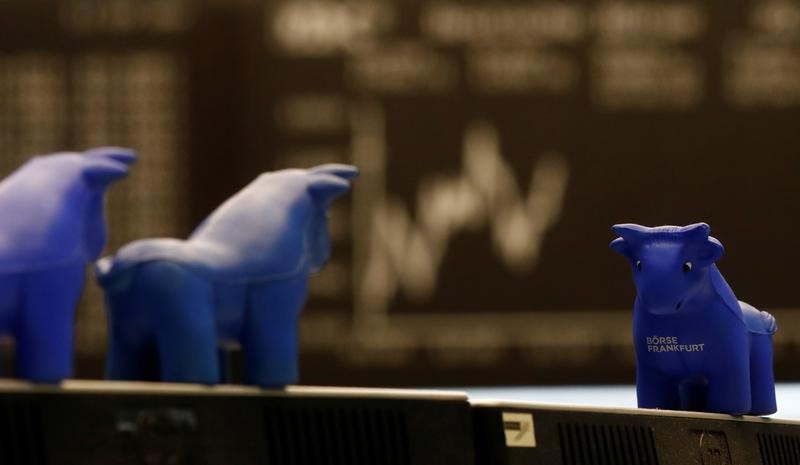This post was originally published on this site
https://i-invdn-com.investing.com/news/LYNXMPEE0E0CM_M.jpg
At 03:05 ET (08:05 GMT), the DAX index in Germany traded 0.6% higher, the CAC 40 in France traded up 0.7% and the FTSE 100 in the U.K. rose 0.5%.
European stocks recorded in November their best month since January, as easing inflation boosted talk that the European Central Bank is done with aggressive rate hikes.
These expectations were added to Thursday after data showed that eurozone inflation fell to 2.4% in November, down from 2.9% in October and significantly lower than expected.
ECB officials have been keen to play down expectations of rate cuts next year, but the new governor of the Bank of Italy, Fabio Panetta, who is also a member of the ECB’s governing council, said on Thursday that the ECB must not cause “unnecessary damage” to the economy and financial stability through sustained high interest rates.
ECB President Christine Lagarde is set to speak later in the session, ahead of an appearance from Fed Chair Jerome Poweel, and their views on future monetary policy will be studied carefully.
The latest data on manufacturing activity in the eurozone is due for release later in the session, and is expected to confirm that this important sector remains firmly in contraction territory in November.
Adding to the positive tone, a private survey showed an unexpected rebound in Chinese manufacturing activity in November.
China’s private Caixin/S&P Global manufacturing purchasing managers’ index unexpectedly rose to 50.7 in November from a 49.5 reading in October, exceeding the 50 mark separating growth from contraction.
However, the reading came a day after an official survey showed a contraction in both manufacturers’ and non-manufacturers’ activity, underscoring problems in the world’s second largest economy, and a major export market for Europe’s top companies.
Oil prices retreated Friday, adding to the previous session’s losses, after voluntary oil output cuts agreed by OPEC+ producers fell short of expectations.
By 03:05 ET, the U.S. crude futures traded 0.1% lower at $75.87 a barrel, while the Brent contract dropped 0.2% to $80.71 a barrel. Both contracts lost over 6% each in November, after steep declines on Thursday.
The Organization of Petroleum Exporting Countries and allies, a group known as OPEC+, agreed to a voluntary output reduction of 900,000 barrels per day in addition to extending 1.3 million barrels per day in production cuts already in place.
While the new cuts are still set to negate a crude oil surplus in the first quarter of 2024, supplies will be less tight than initially anticipated.
Additionally, gold futures rose 0.2% to $2,041.60/oz, while EUR/USD traded 0.1% higher at 1.0898.

